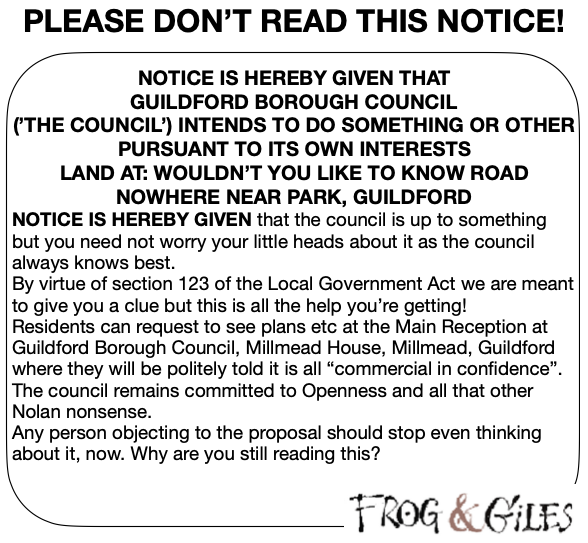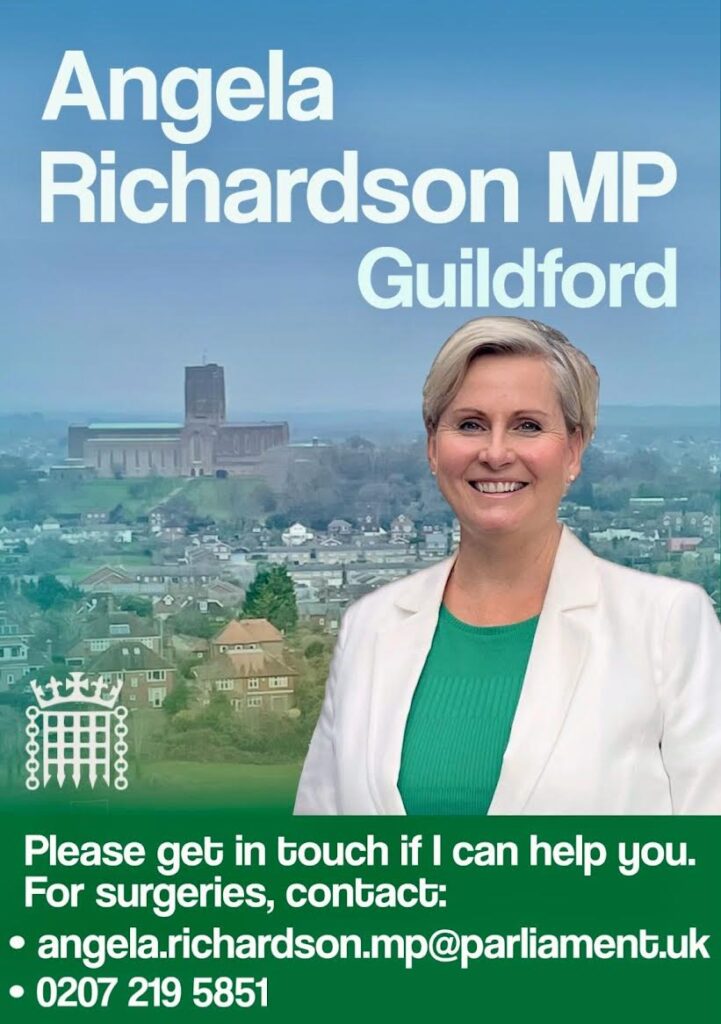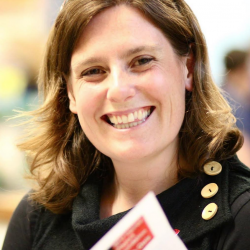 Abraham Lincoln
If given the truth, the people can be depended upon to meet any national crisis...
Abraham Lincoln
If given the truth, the people can be depended upon to meet any national crisis...
 Guildford news...
for Guildford people, brought to you by Guildford reporters - Guildford's own news service
Guildford news...
for Guildford people, brought to you by Guildford reporters - Guildford's own news service
Feature: Life of a Local Democracy Reporter
Published on: 15 Jan, 2019
Updated on: 16 Jan, 2019
In January 2017 the first Local Democracy Reporter started work focussing on council business. Twelve months on and 50,000 stories later there are now 150 LDRs providing impartial coverage of local authorities across England, Wales and Scotland. To celebrate the first year of the BBC funded scheme, Rebecca Curley, LDR for Surrey, explains how and why it works.
“It’s okay, the media never come to these meetings”!
That was a comment by one councillor said within just a couple of weeks of me starting out as Surrey’s Local Democracy Reporter.
And thank goodness he made it.
So many people are struggling day-to-day making their cash stretch to feed their family, heat their homes, run a car and all the bits in between.
So when that resident/business owner is handing over a big chunk of their cash each month in council tax or business rates they have a right to know how it’s being spent.
That is at the forefront of my mind when I sit down on the wooden benches at Surrey County Hall or the borough and district town halls, listening to comments about over-subscribed primary schools, cuts to libraries, and why there just isn’t enough cash to fill in badly potholed roads. (By the way, the chairs in the council chamber at Spelthorne are the comfiest).
For me, being a Local Democracy Reporter is about holding the council to account on behalf of all residents in the area. And I love it!
My main priority is covering the work of Surrey County Council – attending meetings, following up reports, looking deep into agenda items and, most importantly, trying to decipher pages and pages of council jargon.
Sometimes there could be two or three meetings in one day. Or they could be in the evening. So the trusted packed lunch box and a hot flask of coffee are often seen out and about with me.
I have my weekly schedule of meetings to attend and will know in advance what I think I will get from them. But the beauty about covering council meetings is you never can quite predict how a meeting is going to pan out.
At the Surrey County Council meeting in a committee room looking into audit and governance of the council, where the comment about no media was made, I walked away with three stories.
And then there was the time a councillor took a bag full of road and tipped it out onto his table to make the point of the poor state it was in.
At another meeting, a young mum and her baby were in a room of councillors and council officers fiercely defending why a children’s centre should not be closed. Just the mum and her baby against the world.
And at one meeting the public gallery was full of supporters for a local library in specially-printed T-shirts waiting to hear the fate of their campaign to save it from closing.
The thing about local democracy is that it affects everyone. And that is who we are there to represent – everyone.
Funded by the BBC and rolled out through local newspapers, the idea of the Local Democracy Scheme is to share the resource.
We produce copy to certain editorial standards; publishing articles to a central system, which is then made available to every outlet signed up to the scheme with the support and guidance of the newsdesk and editors at Surrey Live and its associated newspapers – Surrey Advertiser, Surrey Mirror and the Dorking and Leatherhead Advertiser – who employ me and oversee my work.
Then there can sometimes be radio interviews with the team at BBC Surrey to delve further into the story, and a weekly slot on the DriveTime show on a Thursday to discuss three of my stories from that week.
Live Tweeting, I can keep people updated about what is going on as it happens.
The core work of the LDRs is to provide impartial coverage of local councils and other public bodies, such as NHS trusts. It helps ensure public oversight and public accountability of those who take decisions on behalf of their communities, through facilitating local media scrutiny and coverage.
Outside of meetings, there is plenty to keep me busy. I am meeting up with contacts, chasing up off-diary stories or features, submitting Freedom of Information requests to the 11 Surrey borough and district councils for a more rounded story and analysis, as well as making sure I am interesting and cool on Twitter and Facebook, and then lining up stories for the following week.
The LDR scheme has been years in planning and developing and, I think, has already proved its worth.
When you are in that stuffy council chamber you are the parent, child in care, pensioner in a care home, teacher in school, social worker, business owner, taxpayer – in fact anyone living in the county – as well as trying to balance that out by seeing things from the council officer’s point of view.
Because the democratic setup of our local councils impacts everyone, and everyone deserves to know what is being done with their money.
As for the bag full of road….that made it to the front page of the Surrey Advertiser and – as of Monday this week – repair work.
Cllr Mike Bennison explains: “I got so frustrated with having spent eight years trying to get Elm Road in Claygate resurfaced that I picked up a bag full of stones and at a local committee meeting poured them all over the table.
“Thanks to Rebecca being at the meeting and the attention the story got it did the trick. Working together as a councillor and a journalist we’ve achieved a brand new surface of a vital road that serves the doctors’ surgery, the day centre, and the youth club let alone a number of houses along its full length.”
Thank goodness there was someone from the media in the room.
Responses to Feature: Life of a Local Democracy Reporter
Leave a Comment Cancel replyPlease see our comments policy. All comments are moderated and may take time to appear.

See Dragon story: GBC’s Explanation of Major Land Sale Notice Error ‘Borders on Arrogant’ Says Councillor




Recent Articles
- Notice: Exhibition – Ripley – World Famous Cycling Mecca
- Volunteer Organisers for the Poppy Appeal Urgently Needed
- ‘Damning’ Report Debated at Council Meeting – CEO Calls for Councillors to Come Together
- Surrey Children’s Services Improvement Recognised by Ofsted
- Independent Guildford Stationers Are ‘Top of the Shops’
- Birdwatcher’s Diary No.304
- Cyclist Dies in Peaslake
- Surviving Strategic Director Quits to Take Up CEO Role with a West Sussex Council
- Letter: Damning Reports Should Not Be Used to Gain Political Advantage
- New Leader of the Opposition at Waverley


Recent Comments
- Olly Azad on Mistreated Former Sub-postmasters Receive Standing Ovation
- Barry Jutsum on Letters, Comments, Complaints Policy and Privacy Statement
- Aubrey Leahy on Guildford Police Station to Close – Officers to Move to Mount Browne HQ
- John Ferns on Guildford Police Station to Close – Officers to Move to Mount Browne HQ
- Barry C Williams on Letter: Cross-party Effort Required to Improve Police Resourcing in Surrey
- Anthony Mallard on Guildford Police Station to Close – Officers to Move to Mount Browne HQ
Search in Site
Media Gallery
Dragon Interview: Local Artist Leaves Her Mark At One of England’s Most Historic Buildings
January 21, 2023 / No Comment / Read MoreDragon Interview: Lib Dem Planning Chair: ‘Current Policy Doesn’t Work for Local People’
January 19, 2023 / No Comment / Read MoreA3 Tunnel in Guildford ‘Necessary’ for New Homes, Says Guildford’s MP
January 10, 2023 / No Comment / Read More‘Madness’ for London Road Scheme to Go Ahead Against ‘Huge Opposition’, Says SCC Leader
January 6, 2023 / No Comment / Read MoreCouncillor’s Son Starts Campaign for More Consultation on North Street Plan
December 30, 2022 / No Comment / Read MoreCounty Council Climbs Down Over London Road Works – Further ‘Engagement’ Period Announced
December 14, 2022 / No Comment / Read MoreDragon Interview: GBC Reaction to the Government’s Expected Decision to Relax Housing Targets
December 7, 2022 / No Comment / Read MoreHow Can Our Town Centre Businesses Recover? Watch the Shop Front Debate
May 18, 2020 / No Comment / Read More








Jules Cranwell
January 15, 2019 at 10:46 pm
It’s good that we have someone holding GBC to account, as their monitoring officer and Corporate Governance and Standards Committee so singularly fails us in this regard.
Stuart Barnes
January 16, 2019 at 11:31 am
The LDR scheme sounds good but if it is controlled in any way by the left wing BBC then it may not be politically impartial. Let us hope that the scheme will allow impartial reporting.